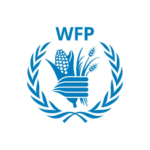The final evaluation of the School Feeding Response Activity Project 2019-2021 in Colombia, a collaboration between the WFP and USAID, was undertaken to assess the project’s impact and effectiveness. This project aimed at integrating Venezuelan immigrants and returnees into the national School Feeding Program (PAE) in Colombia, specifically targeting the department of La Guajira. The evaluation encompassed a comprehensive assessment of various project components, including the provision of nutritious food to migrant children not included in the PAE, capacity building for national and local institutions, and efforts to foster community integration while combating xenophobia, violence, and discrimination. The project’s reach extended to areas with significant migrant populations, including Riohacha, Cúcuta, Barranquilla, Santa Marta, and Arauquita, as well as the national capital, Bogotá, involving diverse stakeholders such as children and adolescents, educators, food handlers, and government entities at multiple levels. The evaluation followed a mixed-methods approach, using a quasi-experimental logic. This encompassed continuous document review, in-person surveys conducted with 106 food handlers and 281 caregivers across five schools in each of the cities of Riohacha, Cúcuta, and Barranquilla. Additionally, the evaluation engaged 153 children and adolescents (NNA) through 28 focus group discussions, complemented by interviews with 51 key informants. The team also collected audiovisual material to encapsulate a broad range of stakeholder perspectives. To analyze this wealth of data, qualitative content analysis was employed to transform the information into both qualitative and quantitative data sets, which were further examined through quantitative descriptive and bivariate analysis techniques. Difference in differences analysis (DID) was employed to assess pre/post educational scores. Triangulation was used to support these analyses, enhancing the credibility and reliability of the evaluation findings.
Projects:
Final evaluation of the School Feeding Response Activity WFP, Colombia, 2017-2022
Sector: Agriculture and Food Systems
Client: WFP
Geography: Latin America and Caribbean
Date: May, 2022

How can we help you?
- Launching a new strategy or reviewing an old one?
- Need new data-driven insights or deep subject-matter expertise?
- Evaluating your performance for course correction or seeking new tools to improve your effectiveness?
DeftEdge helps ensure organizations meet ethical standards and objectives on a range of issues, such as economically empowering women and refugees through access to finance and markets and mitigating the impact of climate change on vulnerable communities. (WFP, FAO, Pact, ActionAid, UNHCR livelihoods partners)
